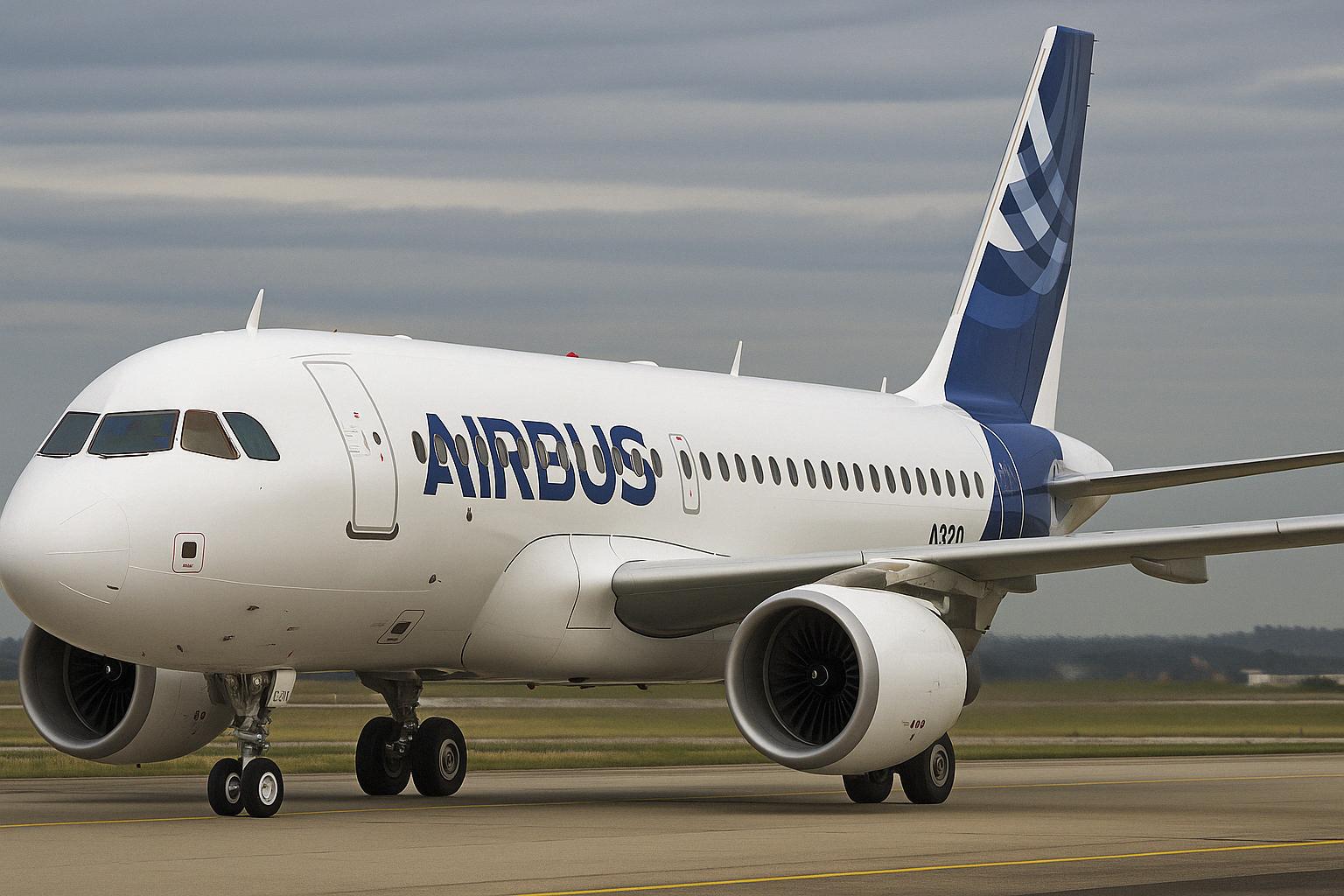After relaunching Fliegerfaust two weeks ago, I’m excited to be back covering what matters most in aviation and aerospace — and in this piece, I dive into the Airbus trade impact and the company’s bold 2025 forecast.
Steady Goals in Unsteady Times
The Airbus trade impact from newly introduced tariffs and supply chain challenges took center stage at the company’s latest Annual General Meeting, where CEO Guillaume Faury nevertheless reaffirmed Airbus’s 2025 financial targets. This comes despite the growing uncertainty surrounding global trade and supply chain pressures. While this confidence has been welcomed by many, some analysts and industry insiders caution that the decision to exclude the impact of newly introduced tariffs from their outlook may prove to be a risky gamble.
Ambitious Numbers for 2025
Airbus remains on track to deliver approximately 820 commercial aircraft in 2025, a 7% increase over the 766 units handed over in 2024. Financially, the company is targeting an adjusted operating income of €7 billion, up from €5.35 billion last year. These are bold objectives. Airbus continues to face turbulence from delayed parts, supplier hiccups, and escalating geopolitical tensions.
Tariffs and the Airbus Trade Impact
A major source of concern stems from the recent decision by U.S. President Donald Trump to reintroduce broad import tariffs, which were later partially suspended for a 90-day grace period. The European Union is expected to respond in kind, potentially disrupting the flow of transatlantic jet deliveries. During the meeting, Faury confirmed that Airbus’s financial guidance issued in February does not reflect these developments. The CEO acknowledged that while the company is actively monitoring the evolving situation, it hasn’t adjusted its projections yet.
Also read: Market Panic and US Tariffs: Can Canada’s Aerospace Industry Benefit? – Exploring how Canadian aerospace suppliers could leverage current trade tensions through strategic adaptation and innovation.
This omission has raised eyebrows among investors. Tariffs on aircraft components or completed planes could delay deliveries. They may also inflate costs across Airbus’s global operations. While Faury expressed optimism that diplomacy might ease the tension, many believe a more pragmatic approach should factor in worst-case scenarios.
Airbus Supply Chain Impact and Trade-Driven Delays
Further complicating matters are ongoing supply chain struggles. Airbus continues to wrestle with production challenges linked to Spirit AeroSystems, a key supplier for the A350 and A220 programs. A deal is underway that would see Airbus take over some Spirit operations. But the timeline extends into mid-2025, raising concerns about short-term disruptions. These continued production difficulties only amplify the Airbus trade impact, especially as delays compound the effects of rising tariffs and material costs. The company has also been navigating workforce shortages and delays in raw material supplies, remnants of pandemic-era slowdowns that still echo throughout the aviation industry.
Strategic Shifts in Defense and Space
Despite these headwinds, Faury emphasized Airbus’s strategic momentum in other areas, particularly in the defense and space sectors. He highlighted the need for Europe to consolidate its fragmented defense industry and confirmed that Airbus is in preliminary talks with Thales and Leonardo to potentially merge satellite business operations. The goal: create a more agile and competitive European player in the space race.
Related reading: China bans Boeing aircraft deliveries — and what it means for the global market.
Competitive Pressures from the East
The CEO also addressed the growing presence of Comac, China’s state-backed aircraft manufacturer, whose C919 jet has gained a strong foothold in the domestic market. While Faury maintained that Airbus and Boeing currently maintain a stronghold on global commercial aviation, he acknowledged the long-term threat posed by a third player entering international markets, especially one supported by a government with deep pockets and a growing domestic demand.
Conclusion: Airbus Trade Impact Raises Questions on Forecast Confidence
While Airbus’s confidence in its 2025 targets underlines the company’s resilience and forward-looking vision, some industry observers argue it borders on overconfidence. Not accounting for recent tariff changes and unresolved supply issues could lead to missed targets or costly course corrections.
With the Airbus trade impact still evolving, long-term forecasting may require more agility than ambition.
Stakeholders in both the aviation industry and financial markets would be wise to keep a close eye on Airbus’s quarterly performance and any future updates to its guidance. With the aerospace sector entering a phase of geopolitical volatility and evolving competition, flexibility may become just as valuable as foresight.
According to a recent Reuters report, Airbus confirmed its guidance does not yet account for new tariffs introduced in early 2025.
For more on Airbus developments, check out our previous coverage on Fliegerfaust.com, including our in-depth look at the A350 ramp-up challenges and the future of European satellite collaboration.
For full details, please refer to our Disclaimer page.

